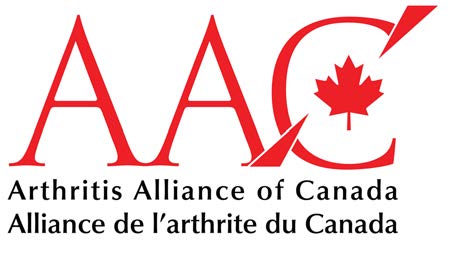Winter 2017 (Volume 27, Number 4)
Arthritis Alliance Canada 2017 Annual Meeting Change is Good: Implementing Arthritis Models of Care
By Deborah Marshall, PhD; Vandana Ahluwalia, MD, FRCPC; Dianne Mosher, MD, FRCPC; Michel Zummer, MD, FRCPC; and Janet Yale, Arthritis Alliance of Canada Board Chair
Download PDF

On October 26-27th, 2017, the Arthritis Alliance of Canada (AAC) hosted its 5th Annual Meeting, “Change is Good: Implementing Arthritis Models of Care,” in Vancouver, British Columbia.
The economic burden of arthritis is on the rise and expected to double within a generation. Availability of specialists in Canada – rheumatologists and orthopedic surgeons – are in short supply and already insufficient to provide timely care to patients.
The “Research Workshop Expert Panel," including Ms. Janet Yale, Arthritis Alliance of Canada Board Chair and President and CEO of The Arthritis Society (Toronto ON); Dr. Vandana Ahluwalia, Consultant Rheumatologist, William Osler Health System (Brampton ON); Dr. Jason Kur, Medical Director, Artus Health Centre, President, British Columbia Society of Rheumatologists (Vancouver BC) and Mr. Gordon Whitehead, Retired Diplomat/Immigration Refugee Board Judge; Consumer Representative, Former Co-Chair of the Arthritis Alliance of Canada (Vancouver BC), shared examples of successful models of care (MOC) in British Columbia and Ontario.
The overarching goal of the workshop was to seek guidance on how to achieve support from researchers and clinicians to adopt and implement an arthritis model of care with the goal of improving patient care. The recommendations from the expert panel included: 1) working with specialists, healthcare providers, health authorities and stakeholders/partners to support physician and patient engagement; 2) enabling health system improvement initiatives, and 3) providing physicians with appropriate training, incentives, tools and resources.
At the joint IA/OA MOC workshop, “Quality Improvement (QI) – Using the Model for Improvement to Implement IA and OA Models of Care,” the experts in QI introduced participants to basic QI concepts and tools. Through a series of practical exercises, workshop participants discussed QI project ideas around implementing IA MOCs and OA tools at the local context. They brainstormed on potential quality problems in their practice, and tried to identify solutions using such practical quality improvement methods as Root Cause Analysis, the Fishbone (Ishikawa) diagram, Process Mapping and Pareto Charts.
Participants were also provided with recommendations on ways to engage stakeholders and work collaboratively with other healthcare providers to design and implement QI projects through: 1) identifying stakeholders with vested interest in a QI project; 2) classifying stakeholders (resisters, bystanders, helpers or champions), and; 3) engaging stakeholders by keeping them informed, soliciting their opinions and suggestions, and having them join the QI team.
The second interactive Models of Care Session for Early Career Rheumatologists, entitled “Setting up a Model of Care in Practice at the Start of Your Career,” gathered young rheumatology graduates to showcase real-life examples of how various IA models of care, such as a nurse-led model in British Columbia, an AHP Triage Model in Ontario, a co-morbidity assessment and management model in Alberta and a telemedicine model in Northern Ontario, are being implemented into practice and how a collaborative team of healthcare professionals can optimize delivery of care to more patients and maximize patient outcomes.
We invite you to read more about the AAC MOC work in the upcoming Spring 2018 issue of the CRAJ publication in March 2018. Stay tuned!
Deborah Marshall, PhD;
Vandana Ahluwalia, MD, FRCPC;
Dianne Mosher, MD, FRCPC;
Michel Zummer, MD, FRCPC;
Janet Yale, Arthritis Alliance of Canada Board Chair
|
